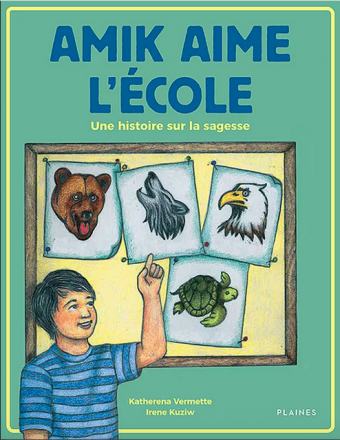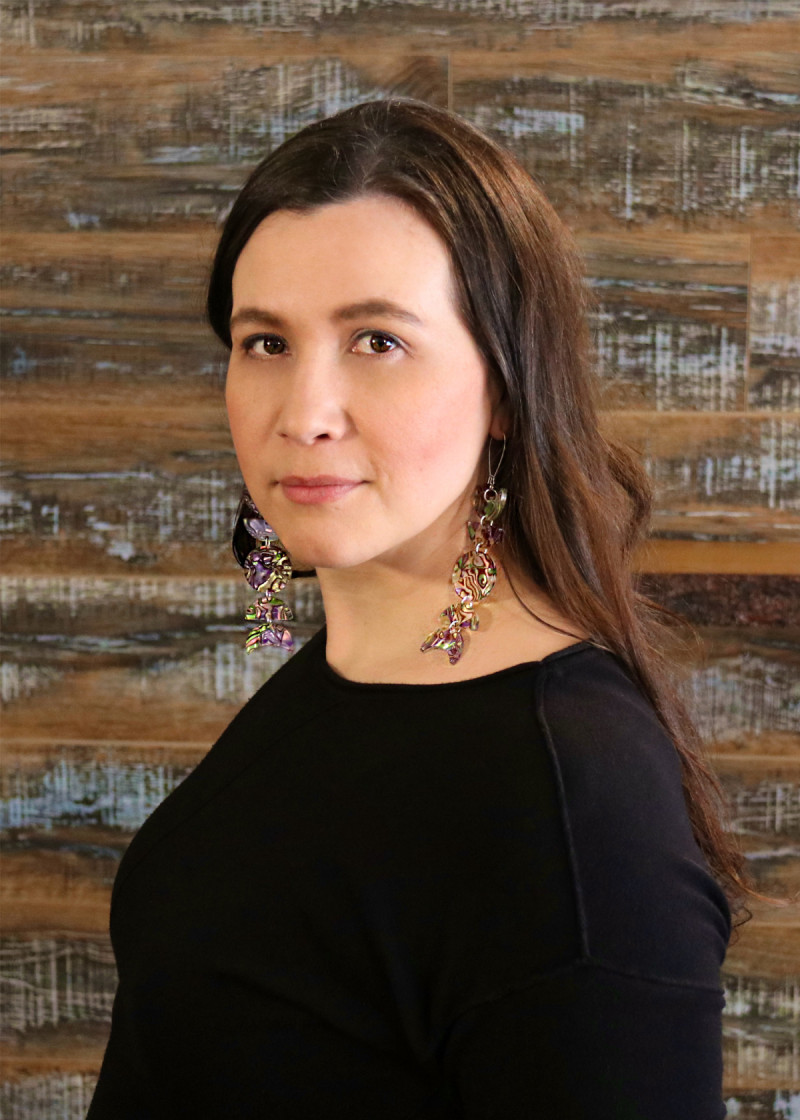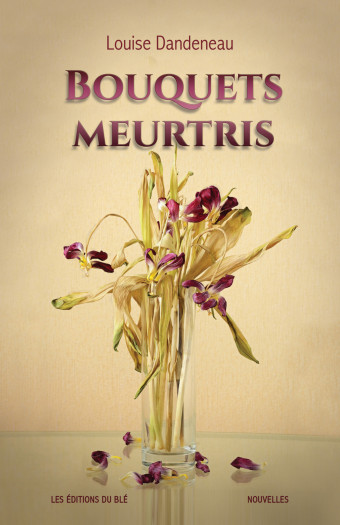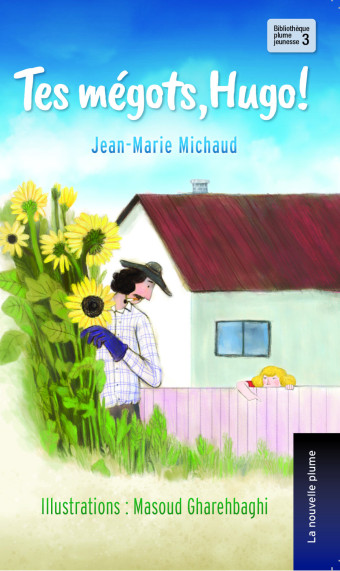What is the importance in having an author’s works appear in translation? “Who wants to be limited to English?” replies Katherena Vermette, the award-winning Métis poet and novelist from Winnipeg.

- Amik aime l’école
- Katherena Vermette, Irene Kusiw (Illustrator), Louise Binette (Translator)
- Éditions des Plaines
- $9.95 , 24 pages
- ISBN: 978-2-89611-686-7
She adds, “I also find the process fascinating. I have spoken to several translators of my work, and each one sees something different, wants to show something different in their translations. It really adds a layer to the work that I couldn’t possibly do myself.”
Her main concern has been properly relaying Indigenous, Métis things. “All of my translators, up to this point, have been non-Indigenous, so there were a few things to explain,” Vermette says. “For the Quebec translations of my novels and poetry, I had asked my francophone Indigenous writer friends to read the translation so they might catch the discrepancies, things like slang, that I would never be able to know.”
Her award-winning novel, The Break, and poetry book North End Love Songs are already available in French. Éditions des Plaines has decided to publish her Seven Teachings Stories (Les sept enseignements en histoire), starting with Amik aime l’école : une histoire sur la sagesse (Amik Loves School: A Story of Wisdom).
The stories are inspired by the Seven Sacred Teachings of the Anishinaabe – love, wisdom, humility, courage, respect, honesty, and truth. Set in urban landscapes, Indigenous children tell familiar stories about home, school, and community.

“Those came from my work as a kindergarten/nursery instructor many moons ago,” Vermette says. “I worked in a special Indigenous-focused program and learned from Elders about the teachings, then tried to centre those very complicated, sacred concepts in our lessons to our very wily students. That work provided all the inspiration for these little storybooks.”
Amik aime l’école was translated by Louise Binette, who has translated over 180 children’s and young adult books. “I’ve always had the good fortune of translating well-written works, which makes the task of any translator a lot easier,” Binette says. “It was the case for Amik Loves School and the other books in the series.”
She used a lexicon of English-French-Aboriginal vocabulary, and at Éditions des Plaines, they consulted with a specialist in Aboriginal languages.
“Since Amik Loves School was written for young readers, the text is simple, well written, and goes straight to the point,” Binette says. “I found it very easy to respect the right tone used by the author. I had to undertake some research to find the exact translation of certain words. For example, smudging is translated in French to ‘morning purification ceremony.’ It’s a good example of the French text being longer than the English text!
“When dealing with an illustrated book, you have to compose with space constraints and try to be as concise as possible without leaving anything out.”











